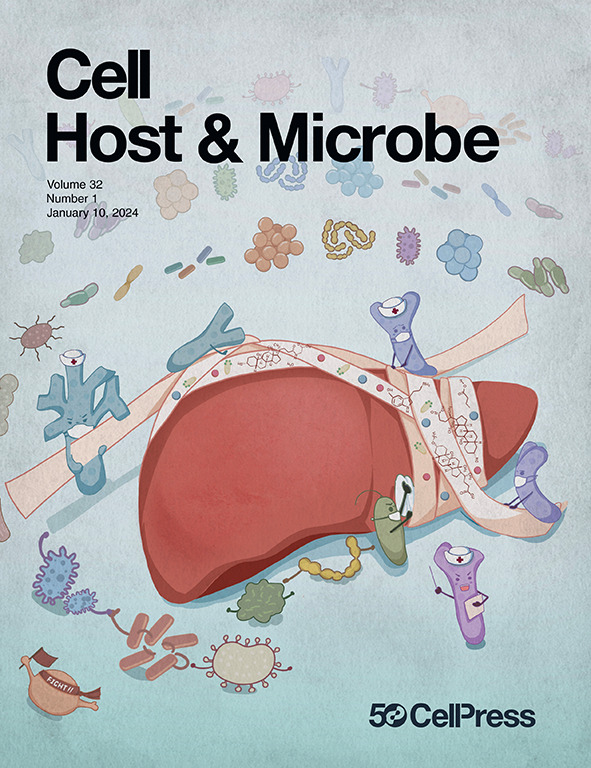微生物群的代谢生态学:营养竞争、宿主利益和群落工程
IF 18.7
1区 医学
Q1 MICROBIOLOGY
引用次数: 0
摘要
许多植物和动物,包括人类,都拥有各种各样的微生物群落,这些微生物群落提供了许多好处。理解微生物组的一个关键挑战是,个体之间的物种组成往往不同,这可能会阻碍推广。在这里,我们认为确定微生物组科学的一般原则的关键在于微生物代谢。在人类微生物组和其他系统中,每个微生物物种都必须找到获取营养的方法才能茁壮成长。微生物组中可用的营养物质与微生物代谢相互作用,以确定哪些物种有可能在宿主中持续存在。由此产生的营养竞争形成了其他机制,包括细菌战和交叉喂养,以确定微生物组的组成和特性。我们讨论了对生态稳定性、定植抗性、宿主营养供应和进化的影响。对微生物组代谢生态学的关注为理解和设计健康、农业和环境中的微生物组提供了有力的途径。本文章由计算机程序翻译,如有差异,请以英文原文为准。
Metabolic ecology of microbiomes: Nutrient competition, host benefits, and community engineering
Many plants and animals, including humans, host diverse communities of microbes that provide many benefits. A key challenge in understanding microbiomes is that the species composition often differs among individuals, which can thwart generalization. Here, we argue that the key to identifying general principles for microbiome science lies in microbial metabolism. In the human microbiome and in other systems, every microbial species must find ways to harvest nutrients to thrive. The available nutrients in a microbiome interact with microbial metabolism to define which species have the potential to persist in a host. The resulting nutrient competition shapes other mechanisms, including bacterial warfare and cross-feeding, to define microbiome composition and properties. We discuss impacts on ecological stability, colonization resistance, nutrient provision for the host, and evolution. A focus on the metabolic ecology of microbiomes offers a powerful way to understand and engineer microbiomes in health, agriculture, and the environment.
求助全文
通过发布文献求助,成功后即可免费获取论文全文。
去求助
来源期刊

Cell host & microbe
生物-微生物学
CiteScore
45.10
自引率
1.70%
发文量
201
审稿时长
4-8 weeks
期刊介绍:
Cell Host & Microbe is a scientific journal that was launched in March 2007. The journal aims to provide a platform for scientists to exchange ideas and concepts related to the study of microbes and their interaction with host organisms at a molecular, cellular, and immune level. It publishes novel findings on a wide range of microorganisms including bacteria, fungi, parasites, and viruses. The journal focuses on the interface between the microbe and its host, whether the host is a vertebrate, invertebrate, or plant, and whether the microbe is pathogenic, non-pathogenic, or commensal. The integrated study of microbes and their interactions with each other, their host, and the cellular environment they inhabit is a unifying theme of the journal. The published work in Cell Host & Microbe is expected to be of exceptional significance within its field and also of interest to researchers in other areas. In addition to primary research articles, the journal features expert analysis, commentary, and reviews on current topics of interest in the field.
 求助内容:
求助内容: 应助结果提醒方式:
应助结果提醒方式:


